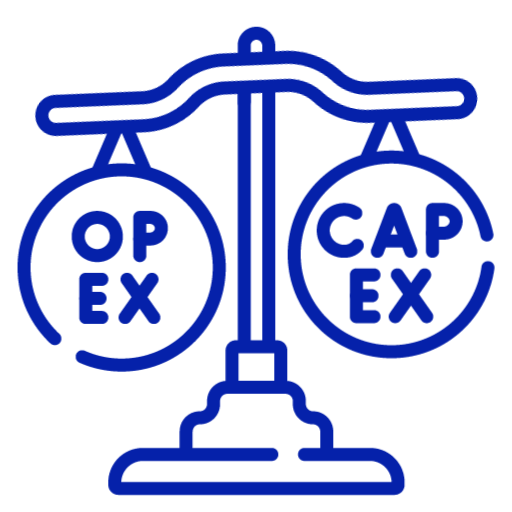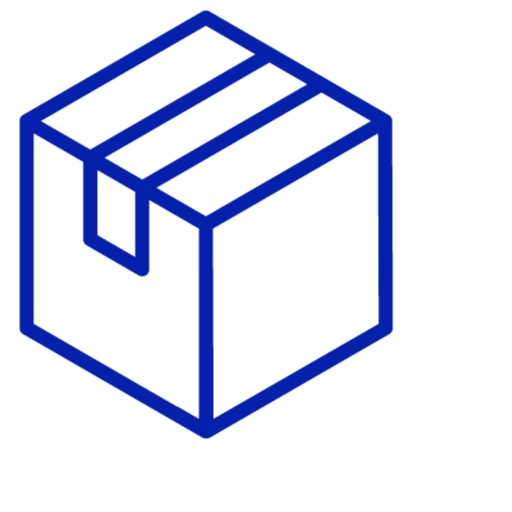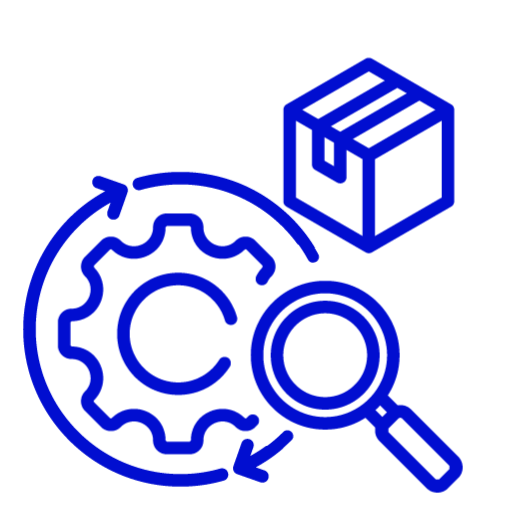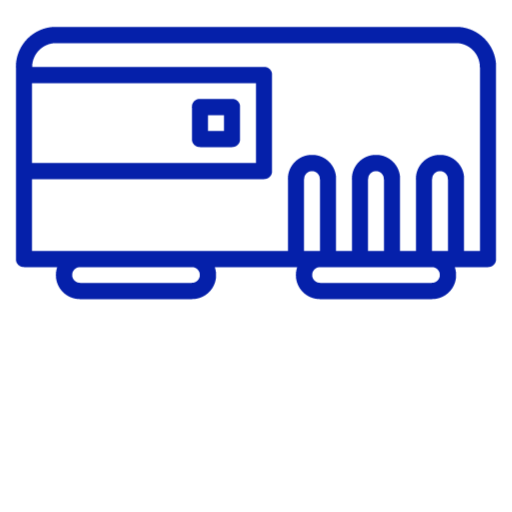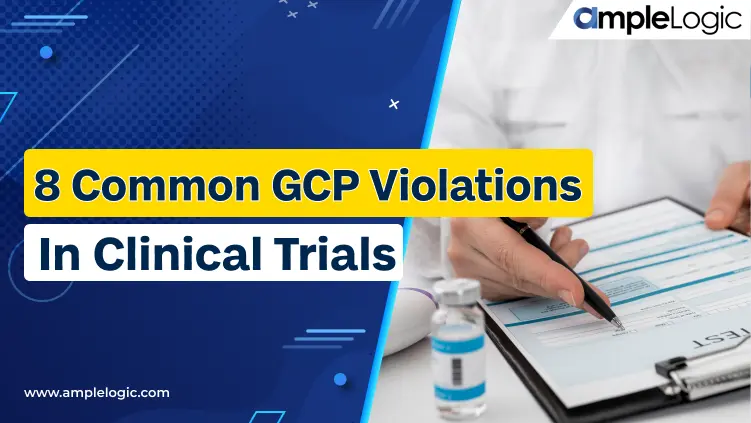
8 Common GCP Violations in Clinical Trials
Clinical trials are crucial for advancing medical research, but ensuring their integrity and adherence to ethical guidelines is paramount. Good Clinical Practice (GCP) guidelines serve as the backbone, dictating the ethical conduct and quality assurance in these trials. However, violations of these guidelines can occur, leading to various repercussions for both participants and trial outcomes. What are GCP Violations? GCP Violations refer to instances where clinical trials deviate from the prescribed guidelines and regulations set forth by international bodies such as the International Council for Harmonisation of Technical Requirements for Pharmaceuticals for Human Use (ICH) and regulatory agencies like the FDA or EMA. These violations encompass a range of discrepancies that compromise the integrity, validity, and ethical standards of clinical research. 8 Common GCP Violations Here are 8 most common instances of GCP violations observed in clinical trials. 1. Failure in Informed Consent Procedures: Inadequate or improper informed consent processes are a prevalent violation. Participants must fully comprehend the nature of the trial, potential risks, and benefits before enrollment. Failure to provide comprehensive information or ethically obtain informed consent can result in serious breaches. 2. Inadequate Record Keeping: Accurate and comprehensive record-keeping is pivotal in clinical trials. Violations in this aspect, such as missing or falsified documentation, can severely impact the credibility and reliability of trial data. 3. Protocol Deviations: Deviating from the approved research protocol is another common violation. Straying from outlined procedures compromises data accuracy and can undermine the study’s integrity. 4. Lack of Investigator Oversight: Insufficient oversight by investigators can lead to various violations. Lack of supervision might result in poor participant monitoring, incorrect drug administration, or failure to promptly report adverse events. 5. Data Falsification or Fabrication: Perhaps one of the most serious violations, fabricating or falsifying trial data undermines scientific credibility and poses significant risks to participant safety. 6. Poor Drug Accountability: Inadequate monitoring and documentation of investigational drugs, including storage, dispensing, and tracking, can lead to serious compliance issues. 7. Inappropriate Subject Selection: Choosing unsuitable participants for a trial can compromise the study’s validity and the safety of individuals involved. 8. Insufficient Monitoring: Lack of rigorous monitoring throughout the trial duration can lead to unnoticed violations and compromise data integrity. Impact of GCP Violations GCP violations have multifaceted impacts, affecting participant safety, trial outcomes, and overall scientific validity. The repercussions extend to regulatory scrutiny, legal actions, and reputational damage for involved parties. Ways to Prevent GCP Violations Preventing GCP violations requires a proactive approach involving robust training, stringent quality assurance measures, meticulous monitoring, and clear protocols. Case Studies Examining real-life examples of GCP violations and their consequences sheds light on the seriousness of non-compliance and its implications. Regulatory Response and Penalties Regulatory bodies enforce strict actions and penalties for GCP violations to uphold ethical standards and ensure compliance. Importance of Ethical Conduct in Clinical Trials Upholding ethical conduct is pivotal in preserving participant safety, maintaining trial integrity, and advancing credible medical research. Conclusion Ensuring adherence to GCP guidelines is imperative in conducting ethical and reliable clinical trials. Straying from these principles not only risks participant safety but also undermines the validity and credibility of scientific advancements. Upholding Good Clinical Practices remains central to the responsible and impactful progression of medical research. Only by abiding by these practices can we really foster safety and have assured success. Schedule a Free Consultation Request a Demo First NameLast NameCompany NameEmailPhone NumberDesignationCountrySelect CountryAfghanistanAland IslandsAlbaniaAlgeriaAmerican SamoaAndorraAngolaAnguillaAntarcticaAntigua and BarbudaArgentinaArmeniaArubaAustraliaAustriaAzerbaijanBahamasBahrainBangladeshBarbadosBelarusBelauBelgiumBelizeBeninBermudaBhutanBoliviaBonaire, Saint Eustatius and SabaBosnia and HerzegovinaBotswanaBouvet IslandBrazilBritish Indian Ocean TerritoryBritish Virgin IslandsBruneiBulgariaBurkina FasoBurundiCambodiaCameroonCanadaCape VerdeCayman IslandsCentral African RepublicChadChileChinaChristmas IslandCocos (Keeling) IslandsColombiaComorosCook IslandsCosta RicaCroatiaCubaCuraçaoCyprusCzech RepublicDemocratic Republic of the Congo (Kinshasa)DenmarkDjiboutiDominicaDominican RepublicEcuadorEgyptEl SalvadorEquatorial GuineaEritreaEstoniaEthiopiaFalkland IslandsFaroe IslandsFijiFinlandFranceFrench GuianaFrench PolynesiaFrench Southern TerritoriesGabonGambiaGeorgiaGermanyGhanaGibraltarGreeceGreenlandGrenadaGuadeloupeGuamGuatemalaGuernseyGuineaGuinea-BissauGuyanaHaitiHeard Island and McDonald IslandsHondurasHong KongHungaryIcelandIndiaIndonesiaIranIraqIrelandIsle of ManIsraelItalyIvory CoastJamaicaJapanJerseyJordanKazakhstanKenyaKiribatiKosovoKuwaitKyrgyzstanLaosLatviaLebanonLesothoLiberiaLibyaLiechtensteinLithuaniaLuxembourgMacao S.A.R., ChinaMacedoniaMadagascarMalawiMalaysiaMaldivesMaliMaltaMarshall IslandsMartiniqueMauritaniaMauritiusMayotteMexicoMicronesiaMoldovaMonacoMongoliaMontenegroMontserratMoroccoMozambiqueMyanmarNamibiaNauruNepalNetherlandsNew CaledoniaNew ZealandNicaraguaNigerNigeriaNiueNorfolk IslandNorth KoreaNorthern Mariana IslandsNorwayOmanPakistanPalestinian TerritoryPanamaPapua New GuineaParaguayPeruPhilippinesPitcairnPolandPortugalPuerto RicoQatarRepublic of the Congo (Brazzaville)ReunionRomaniaRussiaRwandaSaint BarthélemySaint HelenaSaint Kitts and NevisSaint LuciaSaint Martin (Dutch part)Saint Martin (French part)Saint Pierre and MiquelonSaint Vincent and the GrenadinesSamoaSan MarinoSao Tome and PrincipeSaudi ArabiaSenegalSerbiaSeychellesSierra LeoneSingaporeSlovakiaSloveniaSolomon IslandsSomaliaSouth AfricaSouth Georgia/Sandwich IslandsSouth KoreaSouth SudanSpainSri LankaSudanSurinameSvalbard and Jan MayenSwazilandSwedenSwitzerlandSyriaTaiwanTajikistanTanzaniaThailandTimor-LesteTogoTokelauTongaTrinidad and TobagoTunisiaTurkeyTurkmenistanTurks and Caicos IslandsTuvaluUgandaUkraineUnited Arab EmiratesUnited Kingdom (UK)United States (US)United States (US) Minor Outlying IslandsUnited States (US) Virgin IslandsUruguayUzbekistanVanuatuVaticanVenezuelaVietnamWallis and FutunaWestern SaharaYemenZambiaZimbabweWhere you heard about us?– Select –Google SearchLinkedInReferralWord of MouthLinkedIn AdsMediumRequirementGet in touch







